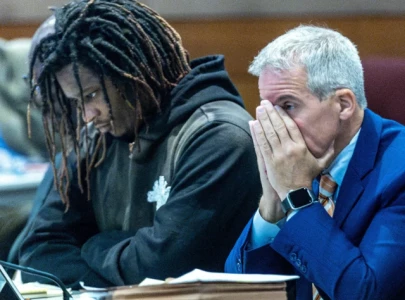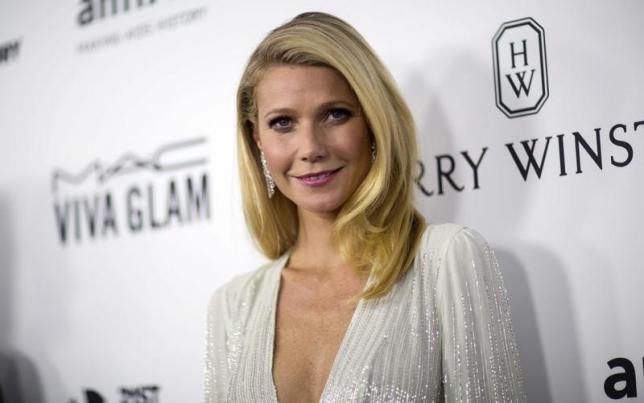This does not mean that cultural differences played no role, but they clearly were not foremost in the minds of the Bengali public intellectuals of the time. It seems certain to me that cultural differences lay fallow underneath the more immediate political/economic grievances, but became more important as the war progressed and the Bengali victims of the violence multiplied. Ironically, cultural differences might have made more of a difference in West Pakistan. Brigadier (retd.) A R Siddiqui, the spokesperson for the Pakistani military government in 1971, published a diary in 2006 in which he recounts how Pakistan’s military leaders derided Bengalis for having ‘Hindu’ characteristics, and a language written with a Sanskrit script, their love of poetry and song, and their alleged ‘non-martial’ qualities. It seems reasonable to assume that one of the factors that led Yahya Khan and his entourage to think they could easily suppress the Bengalis of East Pakistan, and that it was okay to do so, was their perceived cultural differences from West Pakistanis.
History is replete with such ironies. The recent 25th anniversary of Francis Fukuyama’s celebrated and controversial essay, with the pretentious title The End of History brings another, probably more cosmic, irony to mind. In the heady days of 1989, democracy (at least electoral democracy) seemed on the march — the Philippines in 1985, Pakistan in 1988, Eastern Europe in 1989, Bangladesh in 1990, the Soviet Union in 1991, South Africa and other African states threw off authoritarian regimes and embraced democracy and liberal, market-oriented economies. It was easy to conclude that democracy would continue pushing authoritarian regimes aside.
But a funny thing happened on the way to that dream. Thirty years after this third wave of democratisation began, it has not only run out of steam, but its tide has receded. The electoral democracies that emerged in the early 1990s are, for the most part now, electoral authoritarian regimes. They have some of the trappings of democracy without its essence — the full and complete accountability of government and its servants to the governed.
Those of us who celebrated the march of democracy in the 1990s forgot that sustainable democracy requires more than hope. It requires a history of strong and inclusive institutions, and a culture of openness and tolerance that promotes democratic give and take. There must be, among many other things, a judiciary and a police that defend vigorously the rule of law, a political culture that is not zero-sum, inclusive market-based economic and social institutions able to channel the weight of civil society on government, and an apolitical military.
But history has not ended yet. Electoral autocracies are not likely to stand the test of time and the democratic aspirations of billions. As Fukuyama points out, if there were better models than liberal democracy, the flood of migration to liberal democratic countries would not be so overwhelming. The only competitive model is China, which has combined rapid economic growth with authoritarian governance. But that model will be severely tested in the next few decades by the transition it must make to a consumer-oriented economy.
As I mentioned above, what brought the great majority of Bengalis to take on a powerful army from the West in 1971 was their hunger for equal political rights. Yet, that is precisely what they have lost again in the one-party government that emerged from the January election, and could lose permanently if the one-party government becomes a one-party state. Of the many countries that have regressed on the democracy/authoritarianism scale, few have regressed back to their beginning.
Published in The Express Tribune, July 8th, 2014.
Like Opinion & Editorial on Facebook, follow @ETOpEd on Twitter to receive all updates on all our daily pieces.
COMMENTS (21)
Comments are moderated and generally will be posted if they are on-topic and not abusive.
For more information, please see our Comments FAQ




1729137363-0/Liam-Payne-fans-(1)1729137363-0-165x106.webp)









@Gp65: Just take it easy.
@author , Muslims irrespective which nation think that Hindus are non martial and docile that is why pakistan try to invade India and muslims of India burnt train carrying Hindus, the consequences of both action is widely known.
There is nothing that William Milam writes in the article which should be considered controversial or even contridictory; they are the educated observations of a foreigner,. of the events though all leading to electoral democracy, his terminology, but none of them having a common background. Let us look at the saga of Pakistan and its independent Nations who were brought together under one hat of Pakistan because of their sovereign wish to separate from the Hindu majority Indian colony of the anglo saxons. All of them had one common denomination of having a muslim faith but having different languages traditions and cultures. This kind of unity can only work and last under an authoritarian system, be it of military, monarchy or of ideological such as communism. This kind of union, however, may be regarded as a marriage of convenience, but also is very much sensitive to outside foreign influences. The military intervention to combat resistance or reinforce unity among the people is futile. The author is right in his prognosis, history has not yet ended..
Rex Minor
And, do you think that not giving power to the majority Awami League that won the 1970 elections has nothing to do with "...the immediate issue that brought many Bengalis together in their nationalist struggle...?"
@Arzoo: If you can't support your charlatan suppositions with arguments and facts then stop condescending.
So who is projecting?
ET mods- someone has written to me, please allow response.
@Democratization: Fair enough. I accept those qualifications from a Pakistani who knows the ground reality. Though the history of democracy is indeed checkered and I hear Pakistani TV programs and read Pakistani newspapers and have friends of Pakistani origin, I do not have first hand information. So I will take what you say at face value.
Still if someone makes a blanket comment that people abhor democracy as @antanu did, would you not assume he is from Pakistan rather than India? My comment was not meant to be a sweeping comment about Pakistan but rather calling out the lies of this one person who always claims he is Indian while badmouthing India. Surely he has a right to his opinion but why misrepresent one's identity?
@Conceited: So those who are name-calling others as charlatans are projecting?
Neither charlatans or pseudo-intellectuals ever can see themselves through introspection. However, they view themselves by projecting themselves onto others.
@Gp65: "Thus whenevr idemocracy is interrupted, people distribute sweets and welcome the army, So it maybe true that many in Pakistan abhor democracy." Okay, "many" and that too is well qualified with "maybe" is fine but there is no way to conclusively prove that the MAJORITY abhors democracy in Pakistan.
@Genius: Democracy os an ongoing project. As some grievances are addressed, others come to the fore. When civil rights movement in USA, ensured African Americans have equal rights, the movement for euqal rights for women started. While this goal has not been achieved, ghere has been progress. Now the movement for equal rights for gays is going on.
Likewise in India, in recent times, the people organized against corruption. In the first instance, that led to passage of the Lok Pal bill and later the decimation of Congress in the most recent elections. Simlarly people are furious about rapes and the seeming apathy of overnment to deal with and their organizing is leading to policy responses. The old law has already been updated and now there are plans to establish 660 holistic rape crisis centres. In the 60s there were agitations that led o linguistic reorganization of states which allows individual languages and cultures enough space to grow within the umbrella of a united India. If this is not democracy - what is?
Democracy is not some perfect end state where you achieve nirvana. It is a living breathing process which ensures that today is better than yesterday and tomorrow is better than today.
@antanu: In India, people do NOT abhor democracy - as flawed as it is. Over the years, it has given fruits by allowing the voice to the aspirations of diverse linguistic, religious, caste and geographic groups. Though it is not perfect, it gets better over time. You may not recall how fiercely Indians resisted Emergency when it was imposed by Mrs. Gandhi and clearly seem to have missed the enthusiasm with which 550 million people (66% of those eligible) voted.
On the other hand, it does appear as though many in Pakistan do not have the patience to let the system last long enough so that the inherent self correcting aspects of democracy can kick in. Thus whenevr idemocracy is interrupted, people distribute sweets and welcome the army, So it maybe true that many in Pakistan abhor democracy. This is certainly not true in India.
If any proof was needed that you regularly lie about being an Indian, your comment on this board provides it.
@Arzoo: One not only appreciates what is said on the basis of authority but also what is said on the basis of actuality.
@Arzoo: Show how the comments you deemed to have lacked the "breadth" if not the "experience" of the writer. What was wrong with those comments, factually?
@Arzoo: Not surprised by your gratuitous comments.
Democracy/ There is no democracy to be seen anywhere in the world nor will there be any. Not until people do what they need to do. People need to come together to unite and organise. Organise democracy of the people, by the people for the people. Until people embark on this route there shall never be democracy.
Brilliant discourse by Ambassador Milam. Thoroughly enjoyed it. Yes indeed, "history has not ended yet." While the article beautifully presents the historical synopsis of rise and regression of democratic aspirations of multitudes of millions in the decades of 80s and since, it also afford the opportunity for a few charlatans to comment as if they have the same breadth and experience of the writer. Enjoyed their comments too.
An interesting and enlightening observation...no doubt democracy in its present state is the most abhorred system in the countries who embraced it rather late to reap the rewards it brought to older democracies.
Fukuyama's The End of History read like a research paper written by a sophomore in college. History has to traverse difficult roadblocks before it truly leads to a humanitarian democracy. Even recognized liberal democracies of the West do not consistently promote democracy when dictatorships are in their national, economic, political, or strategic interests.
You have failed to analyze as to how the US, which has a significant, if not, determinant influence, has contributed to the frustration of the "Arab Spring" which Obama had sought to bring about but which having gone non-secular as in Egypt caused the US administration to back the military, away from a liberal democracy.
It's a given that wars result from economic and political causes.........cultural differences mainly causes heartburn and indigestion and were resolved by inter-marriage and tactful diplomacy. Sir, your end conclusion has been reached rather hastily. The outcome from the result of the recent Bangladesh elections will take some years to become apparent and prudence says that one should wait and watch.